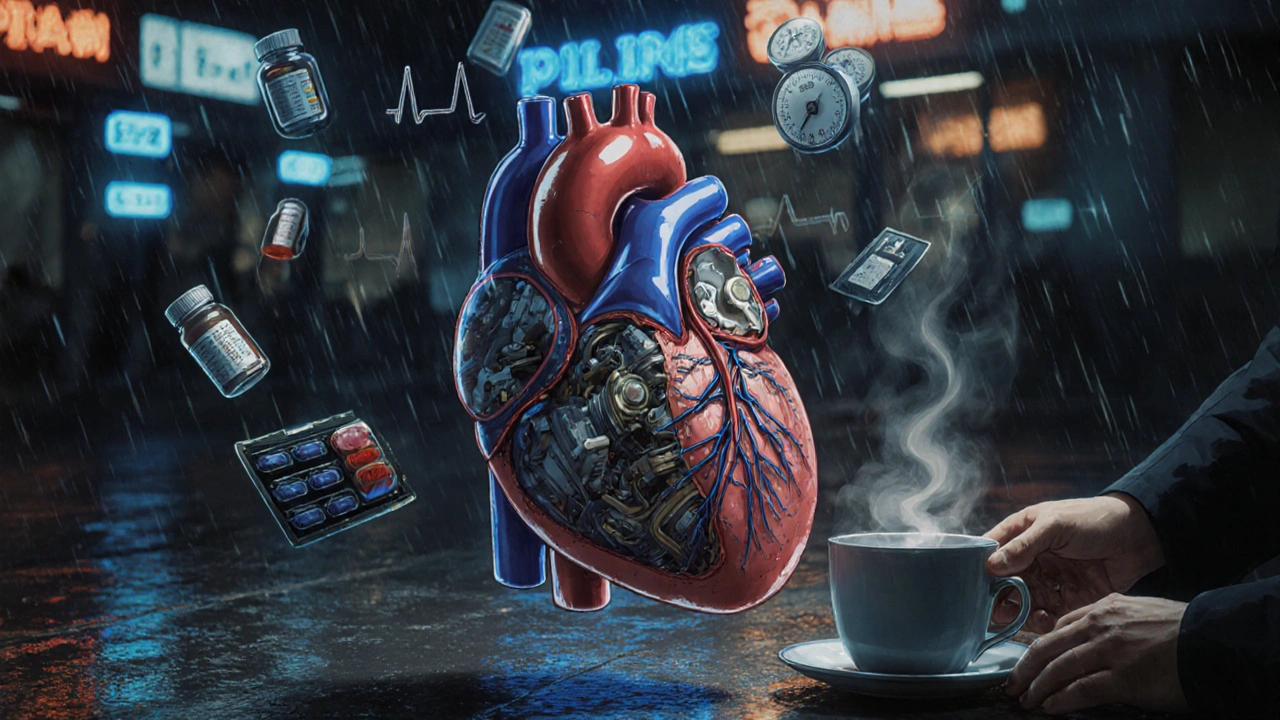Heart Failure: Causes, Treatments, and What You Need to Know
When someone says heart failure, a condition where the heart can't pump enough blood to meet the body's needs. Also known as congestive heart failure, it's not a sudden event—it's a slow decline that sneaks up on people, often mistaken for aging or being out of shape. Millions live with it, and many don’t even realize they have it until symptoms get bad. The heart doesn’t quit—it just gets weaker, stiffer, or both. That’s when fluid builds up in the lungs, legs, or belly, and simple tasks like walking to the mailbox leave you breathless.
Heart disease, a broad term covering conditions that damage the heart muscle or blood vessels is the most common cause. High blood pressure, past heart attacks, and clogged arteries all chip away at heart function over time. But it’s not just about the heart. Heart failure symptoms, like swelling in the ankles, constant fatigue, and waking up gasping for air can also come from kidney problems, thyroid issues, or even long-term alcohol use. The key is recognizing that these aren’t just "old age"—they’re warning signs.
What helps? It’s not one magic pill. Heart failure treatment, a combination of medications, lifestyle changes, and sometimes devices or surgery works best when it’s personalized. Drugs like ACE inhibitors, beta blockers, and diuretics are staples—they lower blood pressure, slow the heart rate, and flush out extra fluid. But diet matters too. Too much salt? That’s like pouring water into a leaky bucket. Exercise—even light walking—can strengthen the heart without overloading it. And monitoring weight daily? That’s how you catch fluid buildup before it becomes an emergency.
People with heart failure often end up taking multiple meds for other conditions—diabetes, high cholesterol, arthritis. That’s why so many posts here focus on drug interactions, generic alternatives, and how to manage side effects. A beta blocker like atenolol might help your heart, but it can mess with your potassium. A diuretic like Lasix helps with swelling, but you need to watch your electrolytes. And if you’re on warfarin, your vitamin K intake has to stay steady. All these pieces connect.
You won’t find miracle cures here. But you will find clear, real-world advice on how to live better with heart failure—what meds actually work, how to spot trouble early, and how to talk to your doctor about switching from brand to generic without losing effectiveness. The goal isn’t to fix it overnight. It’s to keep you out of the hospital, feeling stronger, and in control—day after day.
